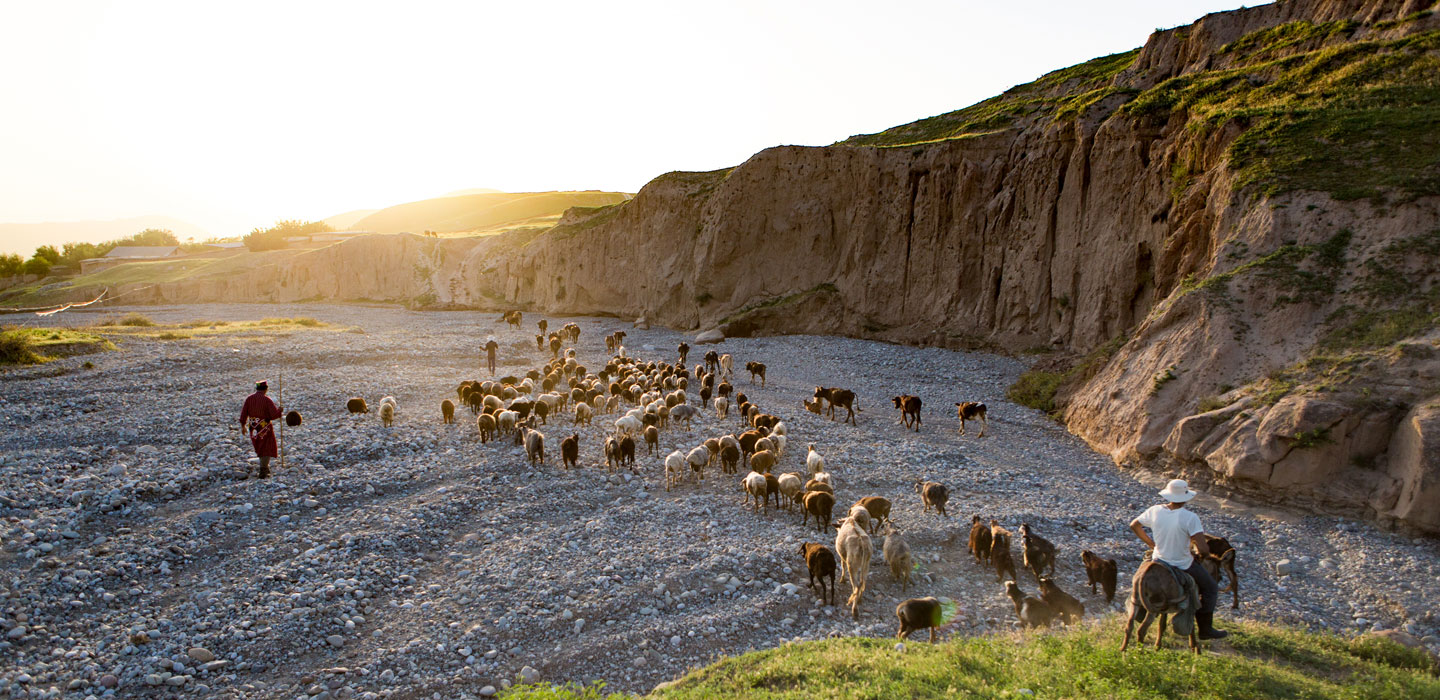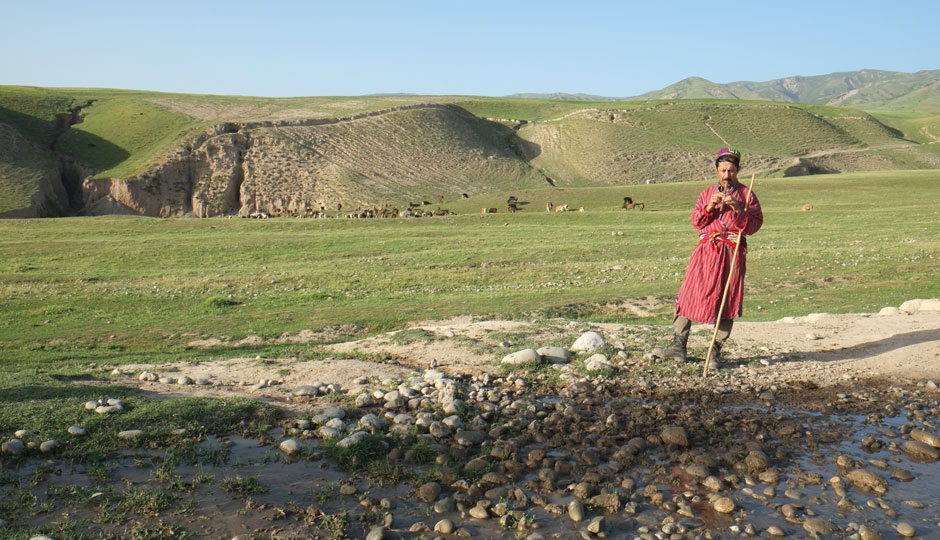هل يمكننا مساعدة المزارعين وكوكب الأرض؟ بالطبع!
IFAD Asset Request Portlet
ناشر الأصول
Help farmers and the planet? Yes, we can
المقدر للقراءة دقيقة 5
©IFAD/Chris McMorrow
Tajikistan is a mountainous country nestled in Central Asia, famous for some of the most inspiring high-altitude landscapes in the world. Amongst the beauty of its alpine scenery and glacial lakes, over five million people live a rural life, the majority of them depending on agriculture for their livelihoods.
Despite the rapid economic progress in recent years, Tajikistan’s economy remains fragile, whilst its rural population keeps growing. These factors contribute to food insecurity and malnutrition, which are high in poor rural households, especially among children.
Livestock is a key part of Tajikistan’s agriculture, with great potential to address food security and malnutrition, especially for the rural poor who only have access to community land. However, it too comes with its challenges. Amongst poor pasture management and environmental degradation, climate change is predicted to take its toll too, causing more frequent and extreme weather events, such as droughts, mudflows, landslides and floods.
If most problems come from the land, so do the solutions. With sustainable land management practices, it is possible to not only mitigate, but also reverse, some of the adverse effects of climate change and land degradation.
IFAD is funding two projects in Tajikistan to help the agricultural sector reach its full potential, and to reduce the impact of climate change on rural communities. One of them, the Livestock and Pasture Development Project (LPDP), focuses on improving land management, as well as enhancing its productivity.
Training and technical support benefits rural youth and the livestock sector
We asked Kholikov Abdurahmon, a 27 year-old Tajik farmer, how he and his family benefitted from the project.
Kholikov has been a farmer since he was 15 years old. He owns rain-fed bare lands, whose conditions had been worsening over the years due to increasing droughts. With the help of IFAD, he converted these lands into a rosehip and pistachio plantation. He told us, “The rosehip and pistachio trees are dry-tolerant trees. When their roots get deeper into the ground, they will not require artificial irrigation from me anymore.” Together with the seedlings and their growboxes, IFAD provided Kholikov with technical training on how to maintain the plantations, harvest rainwater and process the dried fruits.
This young farmer believes that the conversion will soon have great economic benefit for his home: “From the increased household income supported by this IFAD project, I will be able to well-raise my children, improve their nutrition, gradually multiply my rosehip and pistachio trees and ensure great livelihood for my family in the future.”
Kholikov is also member of the local Pasture Users’ Union, through which he can access support on livestock management that IFAD is providing to his village community.

Mirahmadov Fathiddin is the head of another Pasture Users’ Union of Javonon. Mirahmodov told us about the steps taken to mitigate the effects of climate change: “Thanks to the support from IFAD’s project, we established a Pasture Users’ Union, through which we have planned pasture management and reduced pasture degradation. Over the last two years the situation in our lands has improved, we have more productive and resilient breeds of livestock as well as new generations of seeds for fodder crops. Since my household income depends on agriculture, I am also being trained by IFAD on land management and on methods to mitigate climate change risks”.
The Livestock and Pasture Development Project successfully improved the conditions of local community pasturelands whilst increasing farmers’ incomes. The second phase of the project will see a total investment of US$24.2 million to protect pasture communities against climate change, and it intends to benefit 38,000 households by 2021.
To see more success stories of rural communities around the world overcoming the adverse effects of climate change, read IFAD’s latest Climate Action Report, or tune into our latest podcast episode.
تاريخ النشر: 16 ديسمبر 2019